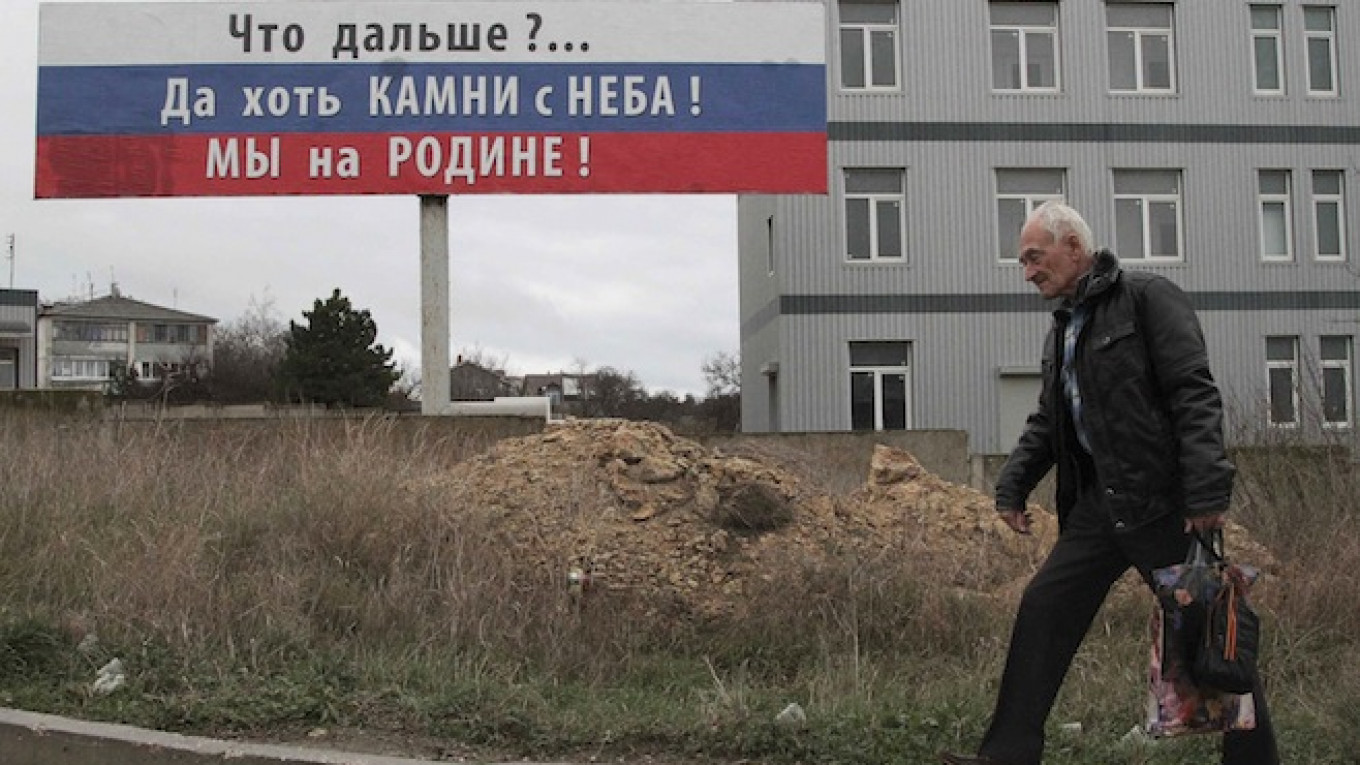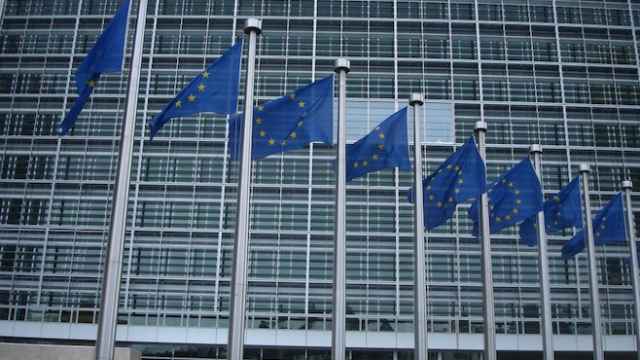BRUSSELS — The European Union banned investment in Crimea on Thursday, halting European help for Russian Black Sea oil and gas exploration and outlawing European cruise ships from calling at Crimean ports.
The new measures, which EU governments have signed off on and will take effect on Saturday, reinforce the EU's policy of not recognizing Moscow's annexation of Ukraine's Crimea region in March.
EU leaders, who meet in Brussels later on Thursday, will pledge to keep up pressure on Russia over its role in Ukraine despite Russia's currency crisis and ailing economy, diplomats said.
The EU is outlawing investment in Crimea, preventing Europeans and EU-based companies from buying real estate or companies in Crimea or financing Crimean companies, the bloc said in a statement.
As Reuters reported on Dec. 10, the new measure bars EU companies from exporting goods and technology used in the exploration and production of oil, gas and minerals in Crimea as well as for the transport, telecommunications and energy sectors.
European companies are also prohibited from offering technical assistance, brokering, construction or engineering services related to infrastructure in the same sectors.
Companies will no longer be allowed to offer tourism services in Crimea. European cruise ships may no longer call at ports in the Crimean peninsula, except in an emergency.
The measure applies to all ships owned or controlled by a European or flying the flag of an EU member state. Existing cruise contracts may be still be honored until March 20.
The 28-nation EU has previously banned the import of goods from Crimea and barred new investment in infrastructure projects in the transport, telecommunications and energy sectors and investing in oil and gas ventures.
The annexation of Crimea gave Russia rich oil and gas resources in the Black Sea, depriving Ukraine of energy resources. Russian state-owned energy company Gazprom has proposed to develop Crimea's oil and gas sector.
A Message from The Moscow Times:
Dear readers,
We are facing unprecedented challenges. Russia's Prosecutor General's Office has designated The Moscow Times as an "undesirable" organization, criminalizing our work and putting our staff at risk of prosecution. This follows our earlier unjust labeling as a "foreign agent."
These actions are direct attempts to silence independent journalism in Russia. The authorities claim our work "discredits the decisions of the Russian leadership." We see things differently: we strive to provide accurate, unbiased reporting on Russia.
We, the journalists of The Moscow Times, refuse to be silenced. But to continue our work, we need your help.
Your support, no matter how small, makes a world of difference. If you can, please support us monthly starting from just $2. It's quick to set up, and every contribution makes a significant impact.
By supporting The Moscow Times, you're defending open, independent journalism in the face of repression. Thank you for standing with us.
Remind me later.






